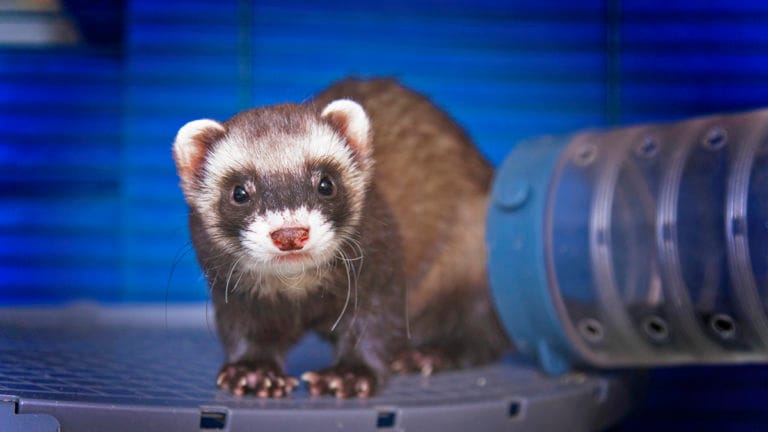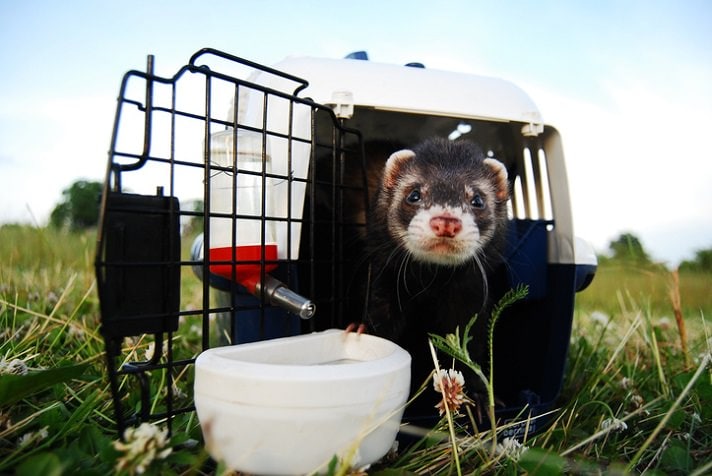
1Ferrets Descended From the European Polecat
2Their Average Lifespan Is Less Than 10 Years

3They’re Susceptible to Some Common Health Issues
Like any domesticated pet, ferrets require annual vet checkups to monitor their health. Some of the health issues they’re most susceptible to include:
- Adrenal disease
- Insulinoma
- Heartworm
- Fleas and ticks
- Lymphoma
They can also experience hairballs and dental disease, so vets recommend brushing their teeth and fur daily. It’s also recommended that ferrets receive a rabies vaccine and canine distemper vaccine.
4Ferrets Are Obligate Carnivores
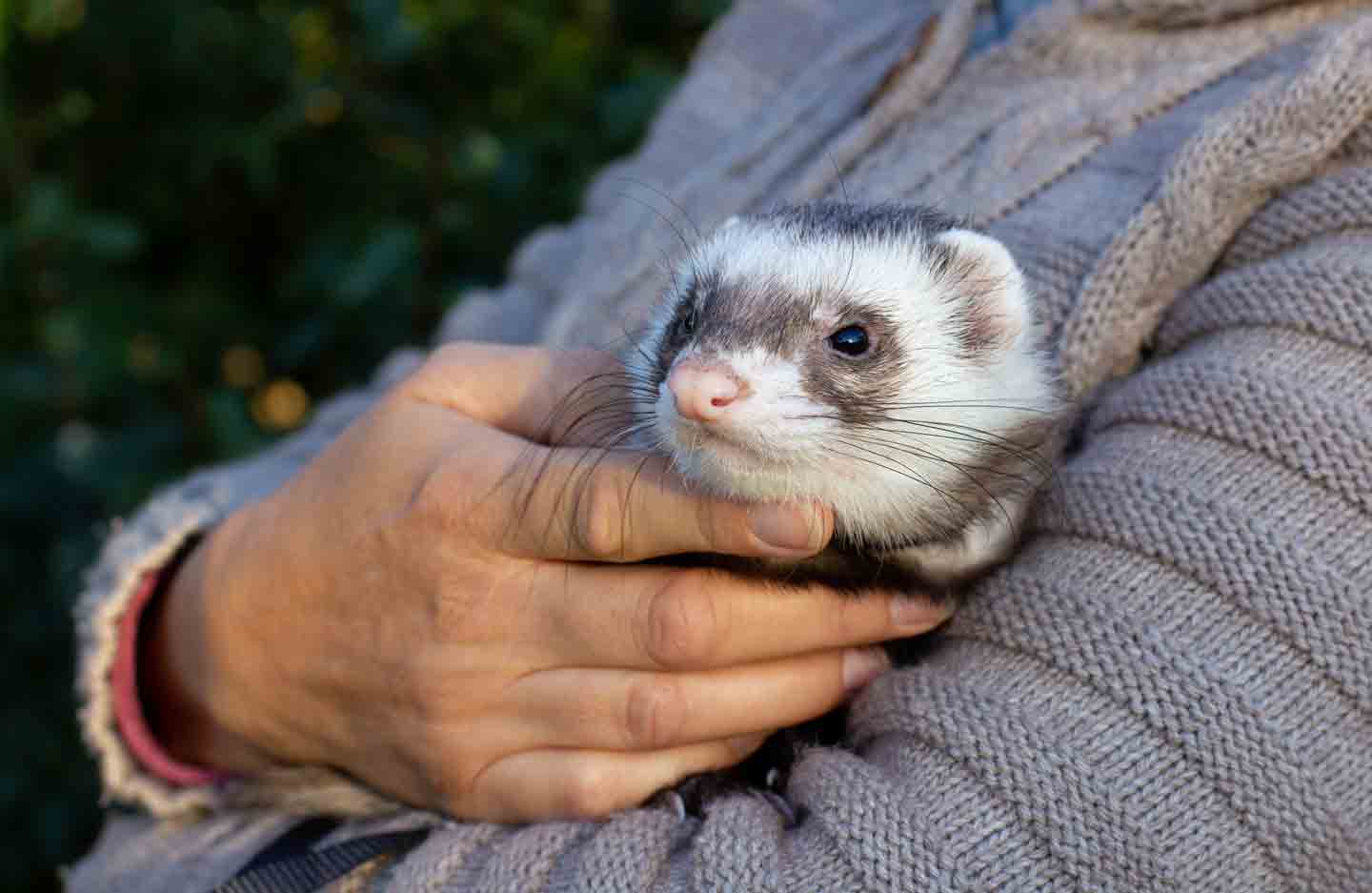
5They Have a Natural Musky Odor
Aside from their long, lean bodies and irresistibly cute faces, one of the first things you may notice about a ferret is their peculiar musky scent. This is completely normal and healthy, explains Teresa Manucy, DVM, a veterinarian based in Jacksonville, Florida, and pet health representative for Chewy.
The musky smell is primarily caused by their skin's sebaceous glands, which produce natural oils, and their anal scent glands, which can release a strong secretion when the ferret is scared or excited. (Don’t worry: It doesn’t have the same potency as a skunk’s spray.) Along with neutering and spaying (which halts some of this odor), young ferrets are typically de-scented, a surgical procedure that removes or reduces the function of their anal glands. Twice-monthly bathing can also help with the scent.
6They Go by All Kinds of Names

7They’re Very Curious Creatures
Ferrets are mischievous pets who have a deep curiosity and desire to explore the world around them. They steal household items—their name is derived from the Latin word furittus, which translates to “little thief”—have a propensity for chewing on stuff; and are great at discovering hiding spots.
“It is important to ferret-proof your home to prevent any accidents and to keep your ferrets safe,” says Dwight Alleyne, DVM, a veterinarian at Acres Mill Veterinary Clinic in Canton, Georgia. He recommends stocking up on cord protectors, baby gates and furniture protectors.
8They’re Delightfully Youthful Their Entire Life
Domesticated ferrets play throughout their life, offering ferret owners an endlessly amusing companion with a distinct personality—and all sorts of individual quirks and odd habits. Their joy in life is infectious!
That said, ferrets require a lot of work, including regular grooming and habitat cleaning. They need attention and can be pesky when they set their minds to something. Their inquisitive nature often leads them into trouble, so you must anticipate and constantly protect them from themselves. Making a mess is exciting for ferrets, and litter box misses can happen.

9Ferrets Prefer Having a Buddy
10They’re Not-So-Great For Young Kids or Other Pets
Ferrets are more suitable pets for adults and older children; most kids under 5 don’t have the physical coordination to safely handle this fragile animal, and their unpredictable and loud tendencies can potentially frighten ferrets.
Additionally, ferrets shouldn’t be given access to birds, small reptiles, rodents (mice, hamsters, etc.) or young rabbits since these animals are a ferret’s natural prey. Conversely, ferrets can be prey for both cats and dogs. Cats occasionally will play with a ferret, but take care if your cat has intense hunting instincts that a ferret might trigger. Similarly, without proper training and socialization, dogs are likely to chase ferrets.
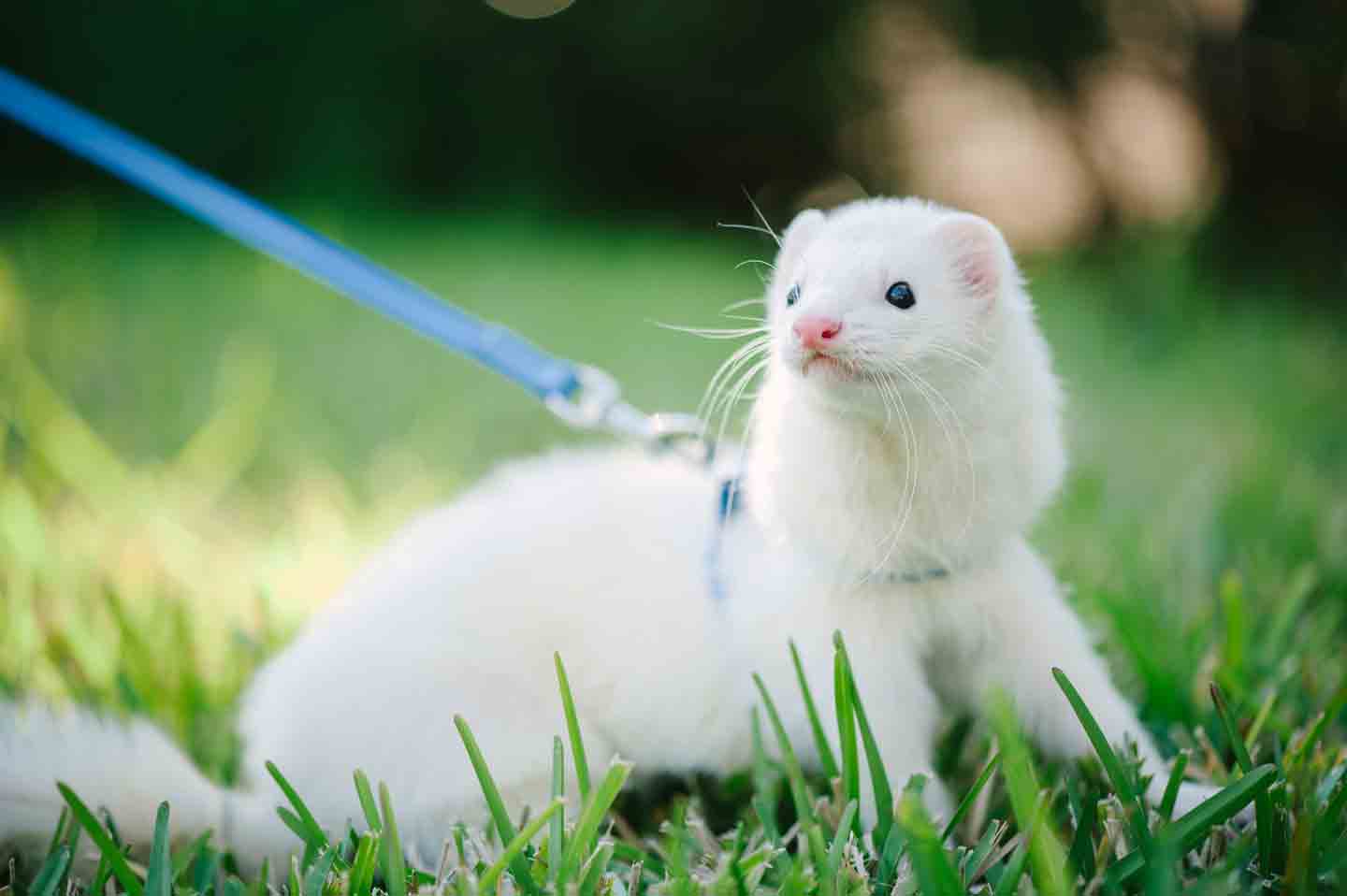
11Ferrets Need Lots of Time Outside of Their Cage
While ferrets require a cage enclosure for sleeping and spending a good chunk of their time, they also require several hours of cage-free time to feel fulfilled. They’re intelligent and social animals who need daily interaction and exploration.
Dr. Manucy recommends three to four supervised hours outside the cage per day, ideally in an enclosed, ferret-proofed space that’s safe for them to roam. An hour of free-roam time while you get ready for work or school, then several hours during the evening works fine. You don’t need to be directly playing with them while they’re out, but they will enjoy and appreciate your company.
12They’re Crepuscular Creatures
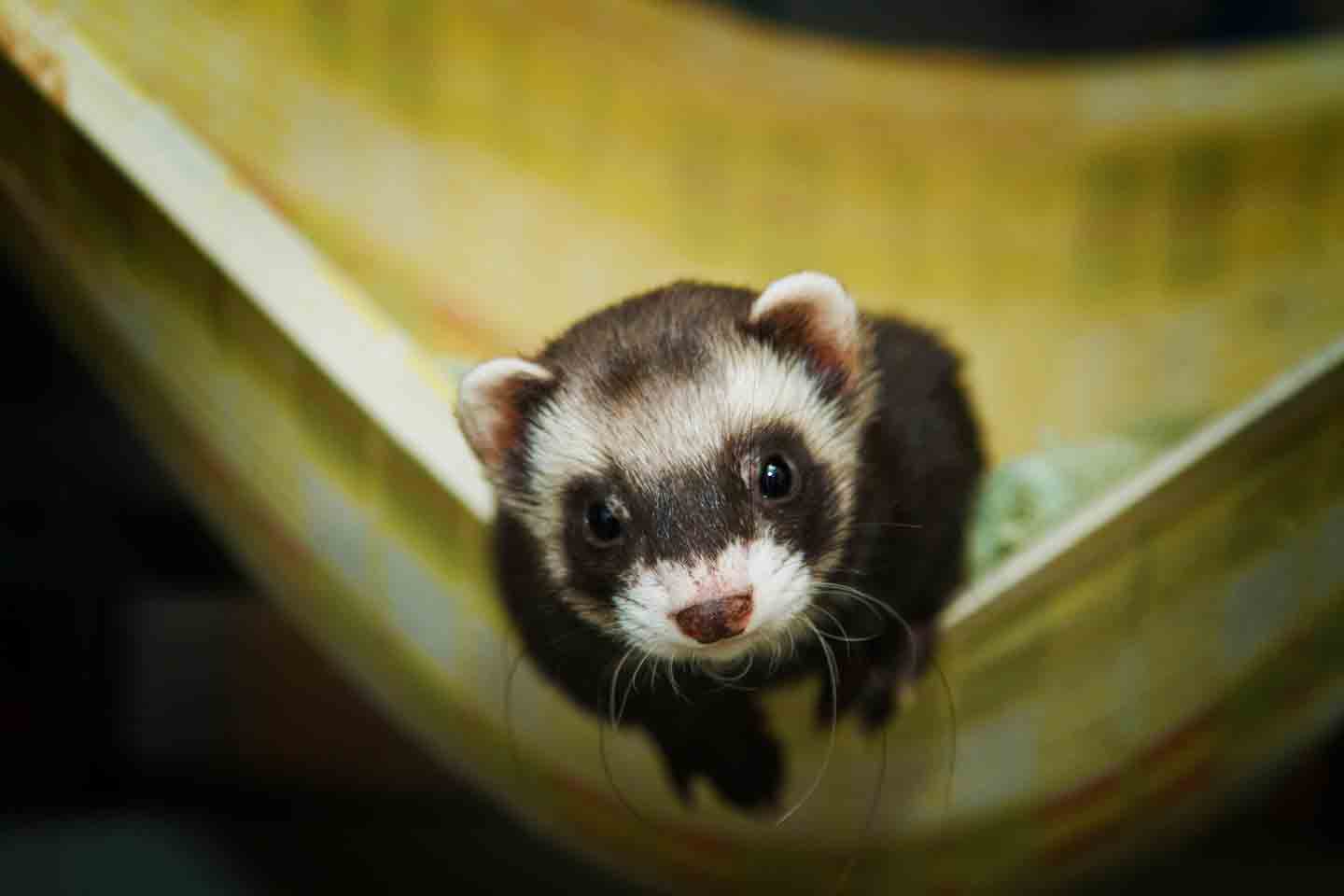
13They Cost About $100 to $400 Each
The cost of a pet ferret ranges $100-$400, says Dr. Alleyne. The cost ultimately depends on whether you’re adopting from a rescue organization or humane society (less expensive) versus purchasing from a breeder. The ferret’s age can also factor in, with young ferrets costing more than older ones.
Another variable is the type of ferret you buy. Those with desirable or unusual traits are usually more expensive. For example, a cinnamon-colored ferret is relatively rare, so you may pay a higher fee compared to purchasing a sable or albino ferret.
14They’re Not Legal in Every State
15You May Need To License Your Ferret
Want to know even more about pet ferrets? Get the full scoop in our pet ferrets 101 guide.
Expert input provided by Teresa Manucy, DVM, a veterinarian based in Jacksonville, Florida, and pet health representative for Chewy; and Dwight Alleyne, DVM, a veterinarian at Acres Mill Veterinary Clinic in Canton, Georgia, and pet expert for JustAnswer.
This content was medically reviewed by Chewy vets.
More Ferret Facts
Share:




